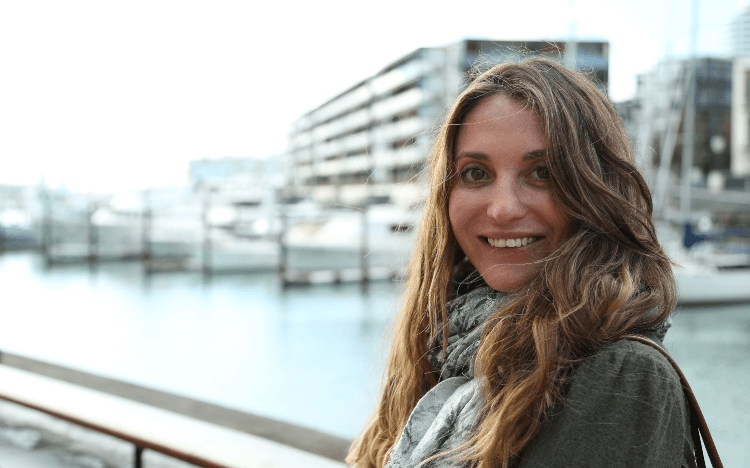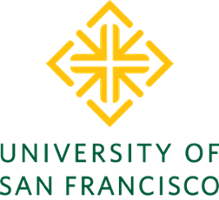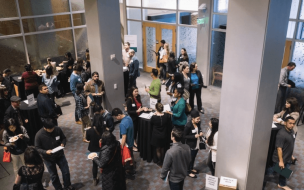After graduating from a bachelor’s in agricultural engineering, Alejandra began her career ensuring agri-businesses met health and safety standards. With this experience under her belt, she decided to launch her own consultancy in the same field.
But being a new business owner wasn’t without its challenges, and Alejandra wanted to learn more about the intersection between managing a business and promoting sustainability.
When she discovered the environmental management and MBA dual degree program at the University of San francisco (USF) School of Management, the decision to apply was easy.
Little did she know the move to San Francisco from her home country of Mexico would be permanent. Today, Alejandra is putting her skills to good use helping the construction industry go green in California.
Choosing a sustainability hub
As a green hub in the US, San Francisco was Alejandra's dream study destination.
The city is among the greenest in America, hosting initiatives including a waste reduction program that’s set to cut landfill waste by 50%. USF itself is even carbon neutral.
“I can see the shift toward sustainability happening here, and to feel that I’m part of that change is amazing,” Alejandra reflects.
The fact that USF offered an environmental management program sealed the deal, and after one semester she decided to add the MBA qualification for a dual degree.
The joint program is STEM certified, and allows students to combine analysis and problem-solving strategies for environmental issues with the business acumen taught in an MBA.
“No matter the background, every business should be socially and environmentally responsible, and I wanted to learn how to embed that,” says Alejandra. “I needed to know not just the science, but also the business side.”

Different perspectives
Juggling her dual degrees was an intense experience, but Alejandra enjoyed every moment.
One highlight was exposure to a diverse group of peers.
“The beauty of the MBA is the amount of diversity in each cohort—not only culturally, but also in terms of professional background,” she says.
This diversity meant Alejandra could draw rich insights from class discussions and group projects. As the only student in her cohort taking the environmental management dual degree, she could offer her own fresh perspective while learning from others.
Her background as a business owner was also an advantage, due to the entrepreneurial slant of the USF MBA program. One module she especially enjoyed covered social entrepreneurship, and brought together MBA students with their peers in the master’s in nonprofit administration program.
“We learned it’s possible to have that combination of profit, accountability, and impact,” she reflects.
Alejandra also took a class with master’s in finance students, which helped her better understand the intricacies of running a business and wider economic considerations.
“MBA classes like these gave me a good perspective on how business usually works in the US, which helped contextualize how we can embed social responsibility,” she says.
Championing sustainable building
As soon as she graduated from USF, Alejandra was offered an internship from the California-based construction company, GCI.
Although she had never worked in construction before, the project—a feasibility study for launching a sustainable demolition branch at CGI—intrigued her.
“That was my gateway to the possibility of doing business in a sustainable way,” she recalls.
The project was a success, which resulted in the launch of a sustainable demolition contractor under the name Madrone. Impressed with her work on the project, GCI offered Alejandra a full-time position.
Today, she oversees the company’s green efforts as sustainability manager. As well as juggling several projects, she’s responsible for ensuring that initiatives are properly communicated throughout the company and to clients.
One of her current projects is eliminating single-use plastic bottles from CGI construction sites. With the new risks posed by COVID-19, reusable bottles are out, and the top contender is cardboard cartons.
“We’re speaking with local recyclers to decide if they’re recyclable, and looking at life-cycle analysis for the container such as how much carbon it emits to produce them,” Alejandra explains.
At every stage of the project, she can draw on the toolkit built at USF, which included a thorough overview of sustainability issues in supply chains.
Alejandra’s post-MBA career looks different to how she imagined, but she’s thrilled to have ended up with a new home in the Bay area.
“I feel like my work is truly having an impact here,” she says. “That sense of fulfilment was the main reason I chose to stay.”
Studying at a top MBA program for sustainable business has set her up for success.








